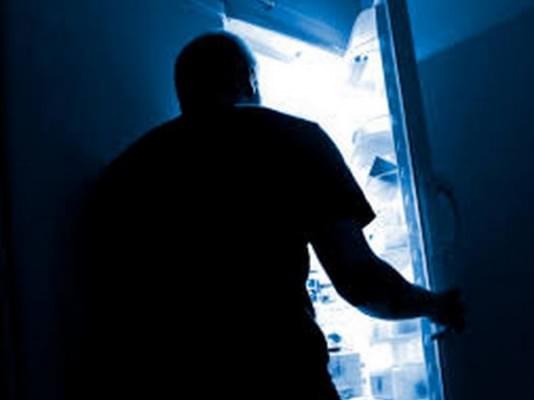That's why we are eating snacks at night
Researchers at BYU have shed new light on why you, your friends, neighbors and most everyone you know tend to snack at night: some areas of the brain don’t get the same “food high” in the evening.
In a newly published study, exercise sciences professors and a neuroscientist at BYU used MRI to measure how people’s brains respond to high- and low-calorie food images at different times of the day. The results showed that images of food, especially high-calorie food, can generate spikes in brain activity, but those neural responses are lower in the evening.
“You might over-consume at night because food is not as rewarding, at least visually at that time of day,” said lead author Travis Masterson. “It may not be as satisfying to eat at night so you eat more to try to get satisfied.”
The study, which appears in academic journal Brain Imaging and Behavior, also reports that participants were subjectively more preoccupied with food at night even though their hunger and “fullness” levels were similar to other times of the day.
Masterson, who carried out the research for his master’s thesis under faculty advisor James LeCheminant, said the intent was to better understand if time of day influences neural responses to pictures of food.
The researchers teamed up with BYU neuroscientist Brock Kirwan to use functional MRI to monitor the brain activity of study subjects while they viewed images of food. The participants viewed 360 images during two separate sessions held one week apart—one during morning hours and one during evening hours.
Subjects looked at images of both low-calorie foods (vegetables, fruits, fish, grains) and high-calorie foods (candy, baked goods, ice cream, fast food). As expected, the researchers found greater neural responses to images of high-calorie foods. However, they were surprised to see lower reward-related brain reactivity to the food images in the evening.
“We thought the responses would be greater at night because we tend to over-consume later in the day,” said study co-author Lance Davidson, a professor of exercise sciences. “But just to know that the brain responds differently at different times of day could have implications for eating.”
Related news
Related news
This is our last chance to control GMOs
🎧 Hallgasd a cikket: Lejátszás Szünet Folytatás Leállítás Nyelv: Auto…
Read more >







